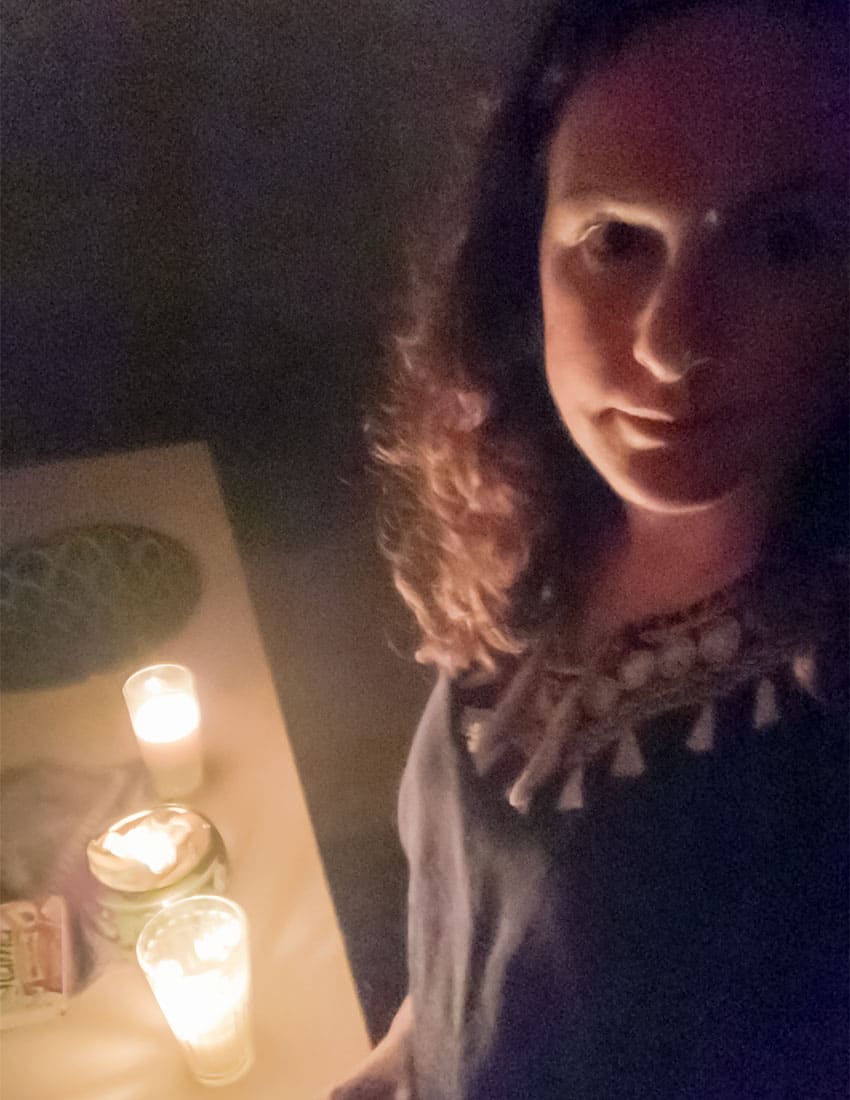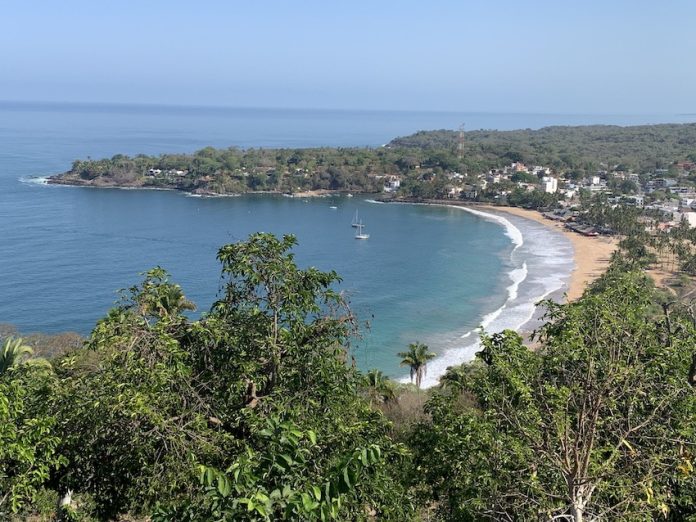Last night, we had our first real rain of the season in Chacala, here in Nayarit. Nary a drop had fallen in 8 ½ months — not since hurricane Roslyn in October. And this is supposed to be the tropics.
I stood outside on my terraza and let the raindrops hit my face, mixing with my tears of relief. Relief from the fires that had been burning around our community for months. Relief from the drought and heat that had withered many of our plants to dry, lifeless nubs — and our streets to dust. Relief from the feelings of far-away-ness and stress I’d been holding onto lately as our community and family faced challenges beyond our control.

Contrary to what most “move to Mexico” social media feeds would have you believe, life in Mexico isn’t always sunsets and margaritas. Life continues to “life” no matter where you live. And sometimes life in Mexico as a foreigner can feel, well, quite foreign.
Never have these feelings been more acute for me than during the last few months when our community was plagued at the same time by fires, smoke, heat and drought, as well as water, internet and cell service outages.
We are used to having one or two or even three of these things occur at once, but having them happen all at the same time for weeks on end brought me to a near-breaking point.
You have to understand: I’m a girl from the suburbs and used to things working relatively smoothly; when they don’t, a service provider comes and fixes it.
Although more fires, heat and drought are being felt by nearly everyone, everywhere, due to global climate change, in the U.S. suburbs, you can usually count on a reasonably well-equipped fire department to come and assist, count on water to still flow and count on people having access to air-conditioned spaces — if not in their own homes, then in stores, restaurants, schools, offices and other buildings.
I know this is a generalization, and there are also many communities in the U.S. without reliable services, but not at the same level as in Mexico. This is certainly the case in Chacala — and I suspect for many other small towns here.
During all this, I received the news that my father in the U.S. had had a cycling accident and needed emergency surgery. Never had I felt so far away from “home.”
For seven years now, Mexico has been my home. More accurately, the small coastal town of Chacala has been my home. I love it here for so many reasons: the beautiful beaches, the close-knit community, the colorful birdlife, the access to fresh fish and fruit, the incredible school my daughter attends, the wonderful friends I’ve made here, the cultural practices and traditions I’ve come to respect and enjoy and the intergenerational, family-centric way of life.
I could go on. I have traveled all over Mexico, and the more I see of the country, the deeper I fall in love with it. But it’s a love that comes with lumps that, as a foreigner, I have a hard time swallowing sometimes.
It’s a nearly daily struggle, no — opportunity for personal growth — to flex and flow with how things work here versus how I think they should work. I’ve had to peel back so many layers of my US- and white-centric conditioning in order to navigate life here.
My sense of urgency, time, responsiveness, the-customer-is-always-right are layers of myself that, quite honestly, I’m happy to shed because they represent a type of entitlement I find ugly in foreigners like me. Except, of course, when I want the damn internet, power, water and cell service to work at the same time.
Living here vale la pena (is worth it), for sure, but there are times when I want to run screaming back to the ‘burbs.
When I reach those points, I take a look around me and see how others — my Mexican friends and neighbors and fellow foreigners who have lived here long enough — are responding, and that’s what brings me back.
I see so many acts of generosity, volunteerism, organizing and can-do-ism — responses from a community that has long had to fend for itself amid the growing pressures of development and corruption (which often go hand in hand), not to mention failing infrastructure and the lack of meaningful government support.
This is what true resilience looks like. And it’s these qualities that this foreigner is trying to develop within herself. She’s also trying to shed some layers of entitlement and escapism when life gets hard in Mexico.
It’s also at these moments when I remind myself that every place has its lumps. Like those idealized social feeds about life in Mexico, I sometimes have an idealized feed in my head about life in the ‘burbs. But no place is perfect, and neither am I.
I may never feel totally at home in Mexico, but I still love it, lumps and all.
Debbie Slobe is a writer and communications strategist based in Chacala, Nayarit. She blogs at Mexpatmama.com and is a senior program director at Resource Media. Find her on Instagram and Facebook.
